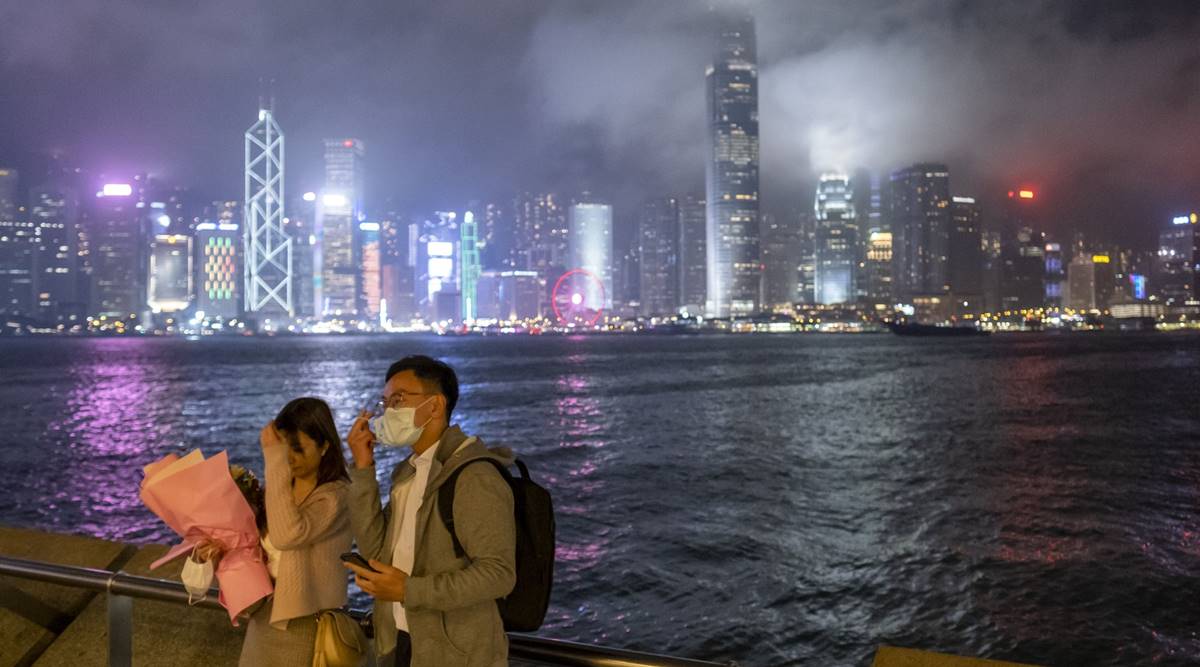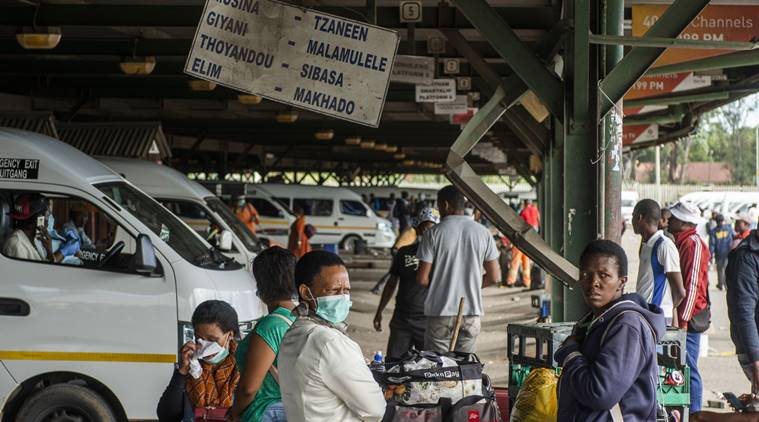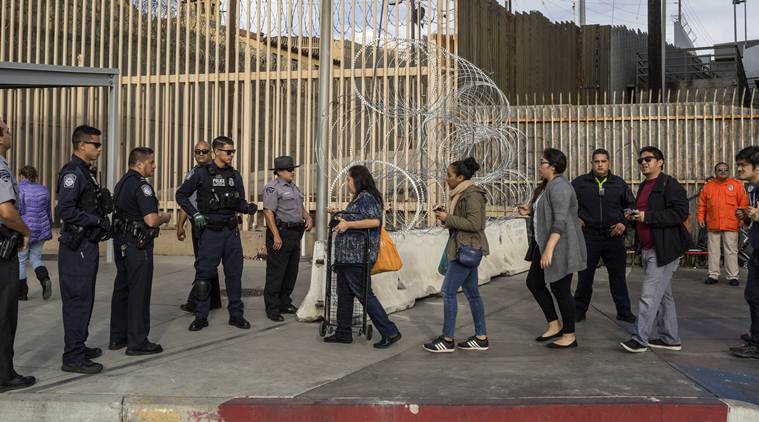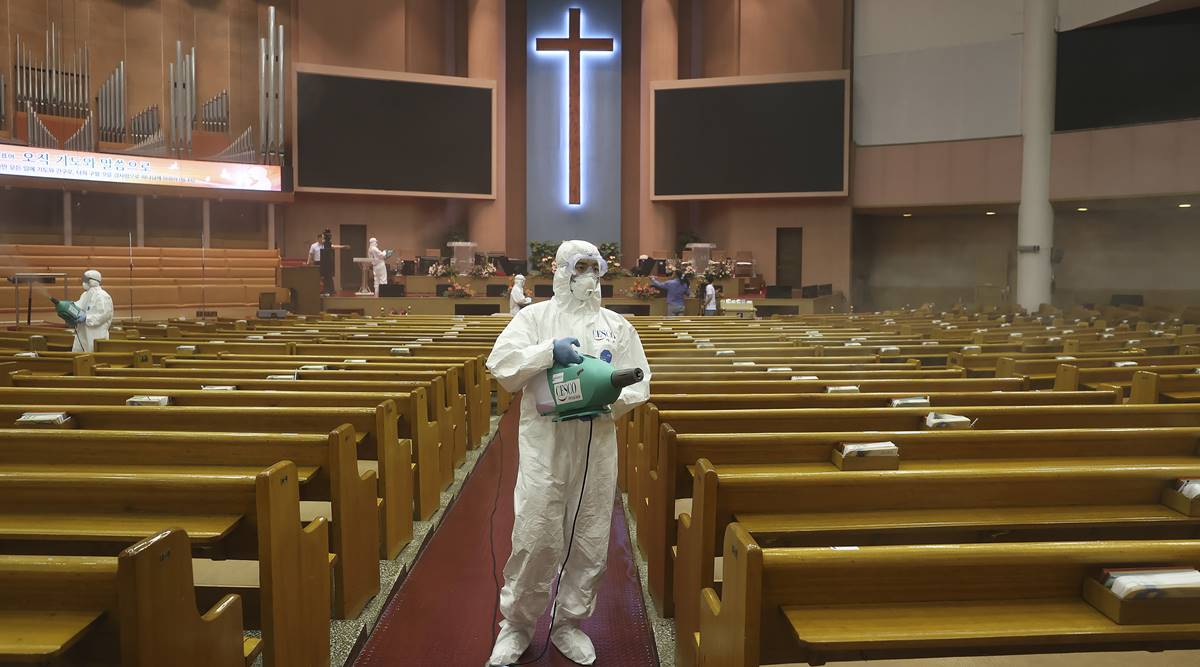 People adjust their hair and a protective mask while posing for a selfie photograph against the city skyline at night in the Tsim Sha Tsui district of Hong Kong, China (Blooomberg)
People adjust their hair and a protective mask while posing for a selfie photograph against the city skyline at night in the Tsim Sha Tsui district of Hong Kong, China (Blooomberg)Coronavirus Global Updates: Since the first case in December 2019, the novel coronavirus has infected over 22.85 million people across the world, while nearly eight lakh people have succumbed to the disease, according to a Reuters tally. Over 19 lakh people have recovered after testing positive.
The World Health Organization (WHO) said it was possible to “get rid of the coronavirus” in “less than 2 years”, faster than the 1918 Spanish Flu — the deadliest pandemic in modern history. Director General of the WHO, Tedros Adhanom Ghebreyesus, told reporters that the time frame may be possible by “utilising the available tools to the maximum and using additional tools like vaccines.”
Here are top developments from across the world:
France delays launch of Covid-19 economic reboot plan to September
France on Saturday said it would unveil details of its 100 billion Euro plan to revive the economy in the first week of September, instead of next Tuesday. (Reuters)

Nepal to resume international flights from September 1 to bring back stranded nationals from selected nations
The Nepal government has decided to resume regular international flights from September 1 to bring back its stranded nationals from countries where the RT-PCR tests are easily available, a senior official said on Saturday.
Under the decision, which was taken during a Cabinet meeting on Thursday, the Nepal government is considering bringing in 500 Nepalese nationals back home per day. The move comes six month after the Nepal government had suspended its international air services to contain the spread of the coronavirus that has so far infected over 31,000 people in the country.
“The Nepal government has decided to resume regular international flights starting from September 1 with a view to bringing home stranded Nepalese nationals in various countries around the world,” Yuvaraj Khatiwada, the Minister for Communication and Information Technology and also the government’s spokesperson, said.
China reports 22 imported COVID-19 cases: officials
Health officials in China say in their Saturday report on the coronavirus that the country had no locally transmitted infections in the latest 24-hour period, though 22 cases were confirmed in Chinese arriving from abroad.
While the local spread of the virus appears to have been contained in mainland China, the semi-autonomous southern city of Hong Kong continues to struggle with its worst outbreak since the pandemic began. (AP)
Singapore reports 50 new COVID-19 cases; total tally reaches 56,266
Singapore on Saturday reported 50 new COVID-19 cases, including five imported infections, taking the national tally to 56,266, the Ministry of Health (MOH) said. The five imported cases have been placed under stay-home notices upon their arrival in Singapore.
The two community cases reported on Saturday are Singaporeans, while the rest 43 patients are migrants, it said. This brings the total number of coronavirus cases in the country to 56,266.
South Korea mulls stricter measures as Covid-19 spreads
After reporting a triple digit increase of new cases for the ninth consecutive day, South Korean authorities are mulling economic restrictions to slow the resurgence of the virus.
Saturday was the second consecutive day the Korea Centers for Disease Control and Prevention reported a daily increase of over 300 new cases, pushing the nine day total to 2,232.
The national caseload now stands at 17,002 including 309 deaths. Infections were reported from every major city and town, but Seoul still accounts for the majority of cases.
South Africa’s tally breaches six lakh mark
Although the number of new cases has been on the decline after peaking in July, South Africa’s confirmed coronavirus cases surpassed 600,000 on Friday, its health ministry said. South Africa had imposed one of the world’s toughest lockdowns at the end of March, when the country had detected only a few hundred cases.
The country has a total of 603,338 cases and 12,843 deaths — accounting for more than half of the continent’s cases and around 47 per cent of its deaths, reported Reuters.
 Commuters wear protective face masks as they wait at a taxi rank in Rustenburg, South Africa on Tuesday, April 7, 2020. (Reuters Photo)
Commuters wear protective face masks as they wait at a taxi rank in Rustenburg, South Africa on Tuesday, April 7, 2020. (Reuters Photo)
UK says travellers from France need to a self-certification
Due to the high coronavirus infection rates in France, travellers coming from the European nation to the United Kingdom on or after August 15 will be required to self-certify that they do not have coronavirus symptoms, and have not been in contact with a Covid-19 patient within 14 days preceding travel, the British government said on Friday. The inbound passengers will also have to self-isolate themselves.
The UK’s quarantine policy began in June. Other countries including Spain, the Netherlands, Belgium, Croatia and Austria are already on the government’s quarantine list.
Moderna says over 40% of US participants enrolled for Covid-19 vaccine trial
In one of the first late stage studies supported by the Trump administration, drug developer Moderna Inc has enrolled 13,194 participants in its ongoing 30,000 volunteer US trial testing of its vaccine. Taking to Twitter, the company said 18 per cent of the volunteers hailed from Black, Latino, American Indian or Alaska Native groups, who are among the hardest hit by the pandemic.
Moderna began the study of its vaccine candidate, mRNA-1273, in July and expects to complete enrollment in September.
US closes lanes, adds checkpoints at Mexico border
The United States has closed several lanes and added more secondary checkpoints to limit non-essential travel to the country from Mexico due to the pandemic. Since March, non-essential travel has been restricted at the border, mostly for Mexican citizens.
President Trump has taken a series of steps to scale back immigration during the coronavirus pandemic, including emergency border rules that allow US authorities to rapidly deport migrants arrested at the border, bypassing standard legal processes.
 Pedestrians present their documents to U.S. Customs and Border Protection agents as they enter San Diego at the San Ysidro border crossing in Tijuana, Mexico, Nov. 22, 2018.(Mauricio Lima/The New York Times)
Pedestrians present their documents to U.S. Customs and Border Protection agents as they enter San Diego at the San Ysidro border crossing in Tijuana, Mexico, Nov. 22, 2018.(Mauricio Lima/The New York Times)
Brazil’s daily coronavirus fatalities exceed 1,000 again
Brazil reported 30,355 new cases of the novel coronavirus and 1,054 deaths on Friday, its health ministry said. The country has now registered 3,532,330 cases of the virus since the pandemic began, while its toll has risen to 113,358. Brazil has been hit hardest by the pandemic, after the United States.
The WHO Friday said the crisis in Brazil appears to be leveling off, if not easing, with the number of weekly detections having stabilised, transmissions slowing, and intensive care units under less pressure. “In general, the trend in Brazil is stable or downwards… and that needs to keep going,” Mike Ryan, WHO’s top emergency expert said.
Swedish PM defends Covid-19 strategy
Sweden’s Prime Minister Stefan Lofven defended his government’s decision not to have adopted a strict lockdown as other European nations. He said, “Sweden has chosen the right strategy in fighting the spread of the new coronavirus… The strategy we adopted, I believe is right — to protect individuals, limit the spread of the infection, etc,” he said.
Sweden’s death toll is much higher than its neighbours, Norway, Denmark and Finland, which adopted much tougher measures, leading many to question the government’s approach.
 Public officials disinfect to curb the spread of the coronavirus at the Yoido Full Gospel Church in Seoul, South Korea (AP Photo)
Public officials disinfect to curb the spread of the coronavirus at the Yoido Full Gospel Church in Seoul, South Korea (AP Photo)
Nigeria to bar entry of citizens of countries that disallow Nigerians
As Nigeria prepares to reopen its airports on August 29, Aviation Minister Hadi Sirika Friday said nationals of counties which have barred Nigerians would be prevented from entering. “Our (Covid-19) numbers are not equal to the numbers we’ve seen in Europe,” Sirika said, adding that with travel bans, “we feel that it is discriminating against our people.”
Nigeria shut its airports in March, and will resume operations at the end of the month.